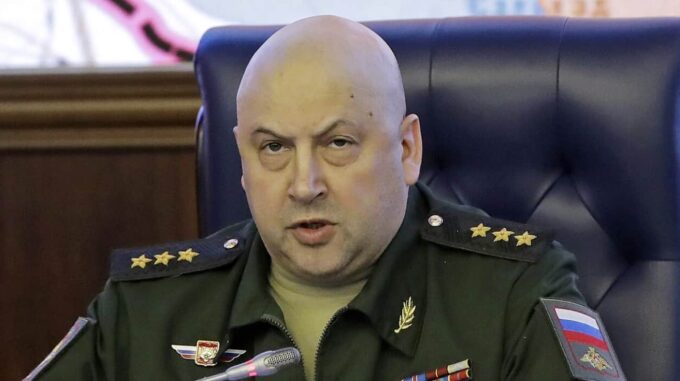British intelligence reports suggest that Russian General Sergey Surovikin, who disappeared from public view after the dramatic events that shook Russia in 2023, is likely currently in Africa — specifically in Algeria

This information about his possible whereabouts emerged in the context of a monthly review by the UK Ministry of Defense, published on May 27, where analysts shared their hypotheses and gathered noteworthy data. According to British intelligence, they received reports from the Russian information space indicating that a photograph taken at the Russian Embassy in Algeria during Victory Day celebrations on May 9 showed signs of activity. In one of the photos from the event, General Surovikin can be seen, allegedly acting as the “leader of a group of Russian military experts.” Experts believe this is the first public appearance of the former commander of Russian forces in the Ukraine war since the onset of the extensive internal conflict in Russia that erupted after the failed Wagner mutiny and the overthrow of the influential private military company Wagner in June 2023. The Russian general has been repeatedly linked to key military operations of Russia, including his participation in Syria, where he commanded the joint troops involved in the Russian military campaign. After the Wagner rebellion in June, Surovikin’s cooperation and status within the Russian military leadership were called into question. Reports have appeared in the media suggesting his possible arrest or imprisonment related to the coup, but the Russian Ministry of Defense has not officially confirmed such details. Data published in September 2023 also indicate that mentions of Surovikin’s name have been removed from public sources — his pages on official websites and ministry resources have disappeared or been hidden. “This is suspicious,” say analysts, adding that this further fuels speculations regarding his fate and whereabouts. Experts believe that such a mysterious disappearance and potential retreat to Africa could be motivated by intense internal political discourse in Moscow. Moreover, Surovikin’s long-standing connections with Wagner — dating back to the Syrian operations — automatically raise suspicions about his role and influence within military circles. It is likely that for these reasons, he was either concealed or sent on a “silent diplomatic leave” to one of the diplomatic centers on the continent to avoid escalating political conflicts. Summarizing their analysis, experts note that Surovikin’s potential presence in Africa, while remaining in the shadows, is another manifestation of the complex and unpredictable situation that has developed within the Russian military and political space after the internal crisis caused by the Wagner rebellion and growing internal tensions in the Kremlin. At the same time, this information raises many questions about the future of the general and his role in ongoing international developments.

